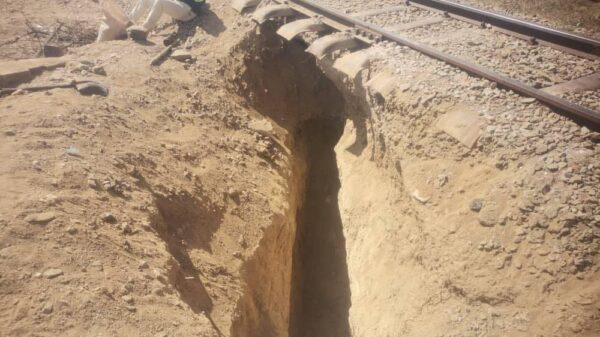African Central Banks are increasing their gold stores as protection against economic and geopolitical instability, and also to help diversify their financial positions, according to a report released Wednesday by Voice of America.
The primary motivation for African countries to amass gold reserves lies in the quest for economic stability amidst global financial turbulence. The US dollar has long been the cornerstone of international trade and finance. It now faces challenges due to America’s escalating national debt, monetary policies that involve quantitative easing, and the weaponization of the dollar through sanctions.
These factors have led countries like Nigeria, Uganda, Zimbabwe, and others to diversify their reserves, seeking refuge in gold, which historically holds value regardless of currency fluctuations or geopolitical tensions.
Carlos Lopes, a professor at the Nelson Mandela School of Public Governance in South Africa, attributes the African central banks’ gold rush to their efforts to protect local currencies.
“In the last few years, because of inflation and all these movements for stimulation packages and the rest, the returns are extremely low,” Lopes said. “On the other hand, gold is going up in terms of price because these big banks are also going after gold as a protection.”
Furthermore, African gold production has increased by 60 per cent since 2010, according to the World Gold Council, outpacing the global rise of 26 per cent.
Additionally, the price of gold a year ago was USD$1,900 and now it’s reached all-time highs of USD$2,500. Experts expect the global demand for gold to increase over the next 10 months regardless of the price, according to the World Gold Council.
Read more: Calibre Mining strikes gold: new high-grade discovery at Nicaragua’s Limon Mine
Read more: Calibre Mining shows analysts the ropes at the Valentine gold project
African countries use gold to escape American economic domination
In 2022, Zimbabwe introduced a gold-backed currency to reduce inflation and stabilize foreign exchange rates. Ghana and Uganda have been purchasing gold from artisanal miners to strengthen their declining foreign currency reserves.
As Africa’s largest gold producer, Ghana plans to buy oil from other countries and pay in gold to ease pressure on its currency and reduce high fuel prices. Some economists argue that gold alone cannot resolve the economic challenges faced by certain African nations.
The World Gold Council advises countries to hold gold for its long-term value, its resilience during crises, and its effectiveness as a portfolio diversifier.
Bright Oppong Afum, a senior lecturer at the University of Mines and Technology in Ghana, said that some African countries aim to use gold to lessen their dependence on the global financial system.
“If sanctions are laid on you, an African country, we know the devastating effects that it will have,” he said.
“The African countries are developing, or they are young, and they do not want to receive some harsh sanctions that will negatively or strongly impact the economics. And because of that, they are strategically reducing their dependencies on these external countries.”
Afum noted that while some Africans understand the value of gold, many sell it to meet their daily needs.
The African Continental Free Trade Area launched the Pan-African Payment and Settlement System, allowing countries to trade using local currencies. Experts believe that implementing such continental payment systems could alleviate the economic pressures some countries face, potentially reducing their reliance on gold.
This plays into a larger trend called de-dollarization where more countries are trying to move away from reliance on the U.S. dollar.
.
Follow Joseph Morton on Twitter
joseph@mugglehead.com













